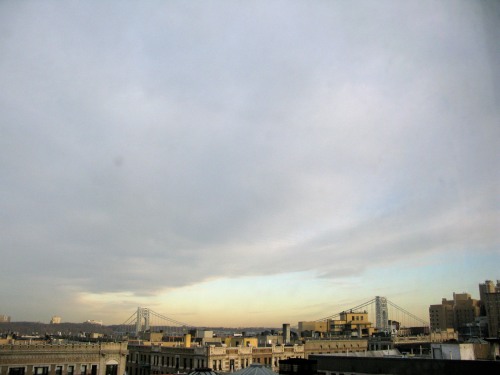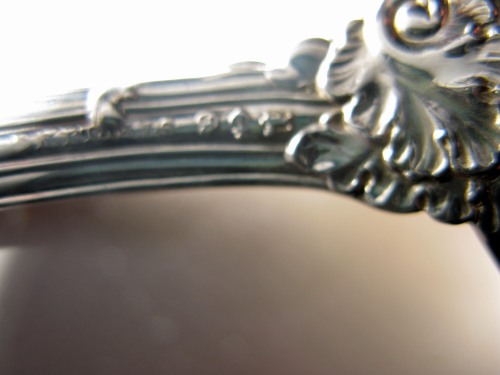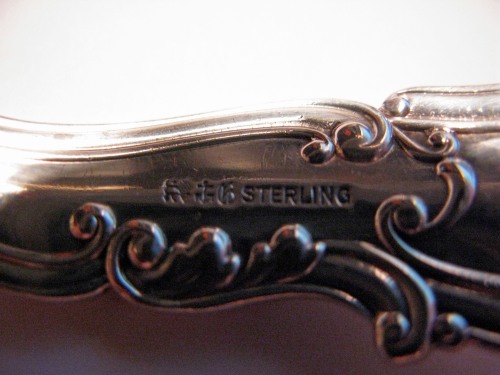In which The Gay Recluse rebrands and retires.

In the effort to be less ‘gay’ and less ‘reclusive,’ I’m ‘rebranding’ with a new blog written by ‘Matthew Gallaway’, which not coincidentally is the name I’ve used for my novel The Metropolis Case, which will most likely publish at some point in 2k10. I hope you’ll join me there! Please let me know if you love/hate the new design, or if you have any technical difficulties with feeds/subscriptions/linkage. Hope to see u soon — miss u! xoxo TGR
Filed under: Conspiracy, Dissonance, Landscape, Longing, The Gay Recluse | 4 Comments
Tags: Matthew Gallaway, Rebranding, The Metropolis Case
On Spring Break
In which The Gay Recluse goes on a trip.
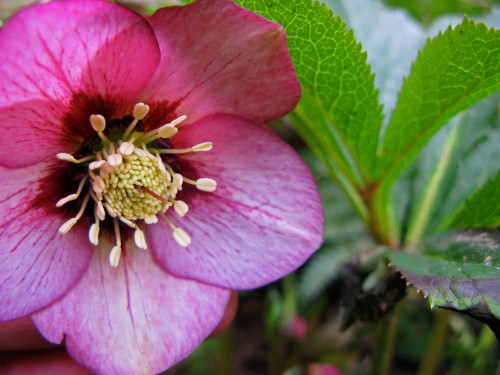
I’m going away for a few days/weeks/months. Hope you have a beautiful spring (via the mythical Helibores)! xoxo TGR
Filed under: Conspiracy, Health, The Gay Recluse, The Spring Garden | Leave a Comment
Tags: Goodbyes, Helibores, Spring
In which The Tsarina takes over The Gay Recluse.

On your entry tonight, The Tsarina remarks by quoting Henry Miller (1941): “There is no salvation in becoming adapted to a world which is crazy.”
[Via reader CBNY.]
Filed under: Quotes, Resignation, Sickness, The Russian Blue, Writers-American | Leave a Comment
Tags: 1941, Crazy Worlds, Guest Blogging, Henry Miller, Salvation, The Tsarina
In which The Gay Recluse becomes increasingly obsessed with the George Washington Bridge.

Today I read a disturbing post on the NYT’s City Room blog about a pair of teenagers who broke into a vacant apartment in Brooklyn, doused a cat with lighter fluid and then set it on fire. According to the article, “[t]he cat was later ‘found outside crying, unable to move, but still alive’… It was taken to an animal hospital with severe burns, and was put to death.”
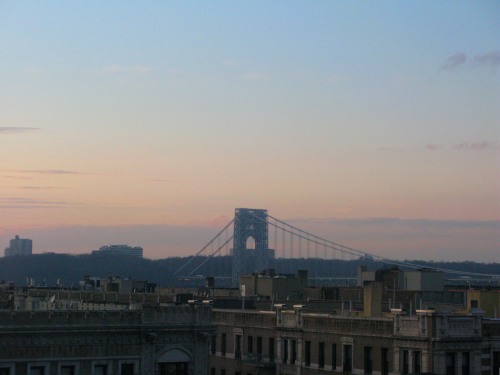
Coincidentally, I was reading Richard Rorty on the subway, who (via Judith Shklar) defines a ‘liberal’ — philosophically speaking — as one who thinks that cruelty is the worst thing a person can do.

He also describes the role of fiction in our culture as a means to 1) empathize with those who are suffering and 2) understand our own capacity for cruelty.

It’s not difficult to imagine telling a story about two teenagers and their decision to torture a cat that fills both of these purposes: in terms of the kids, we might describe the bleak terrain of the neighborhood in which they were raised, the loveless existence they endured for the first ___ years of their lives, the physical and mental abuse they suffered at the hands of others; the slow escalation of mayhem and violence that led them on this particular day to hatch a plan for such a pointlessly repulsive act. We might even try to imagine them as they ignited the cat and listened to its terrified screams, and whether to witness this was as satisfying as they had hoped, or whether they looked at each other with a familiar expression of disappointment. What did they say as it happened? And later, did they laugh or cry or simply not acknowledge it at all, as if they had simply shared a bad dream?

I remember being in Paris 20 years ago, when I happened to go see A Short Film about Killing by Krzysztof Kieslowski; the story involves a young man who directs a taxi out into the countryside, where for no apparent reason he brutally murders the driver; he is quickly caught and sentenced to death, and throughout the proceedings shows absolutely no remorse or really any sign of ‘humanity,’ despite the best attempts of his defense lawyer. It is only near the end — after he shares a painful memory from his childhood — and as he is being led to his death, that we feel any compassion for him; in one miraculous shot he looks up at the lawyer, who is watching from the window above, and we understand from the prisoner’s expression that something has melted in him, that he no longer wants to die, and we — as the audience — no longer want him to die either.

In time, I may write a similar story about two teenagers from Brooklyn who torture animals and live to regret it.

But for now I would like to think about the cat, about how small and defenseless it was, and how the universe showed such little regard to its fate, and how in this sentence ‘cat’ is a metaphor for ‘any of us as individuals at any given moment.’

And how when we grieve, it is really for ourselves, and — finally — how we look to the sky with a certain anger and longing and forgiveness as we remember that despite everything — and this by turn cruel and comforting — we are still alive, at least for now.
Filed under: Brooklyn, Disease, Dream, Film, Gay, GWB Project, Memory, Philosophers, Sickness | 3 Comments
Tags: A Short Film about Killing, Cats, Crimes, Cruelty, Death, Judith Shklar, Krzysztof Kieslowski, Punishments, Richard Rorty, Teenagers
In which The Gay Recluse becomes increasingly obsessed with orchids.

It is in the nature of certain people (ahem) never to be satisfied, which — depending on the context — can be a curse or a blessing.

For example, I just finished a very delicious chocolate cupcake with chocolate frosting (but not too sweet!) and am already aching for another. This is also why it’s sometimes better to leave the contours of life blurry, so that we can be distracted by questions of interpretation instead of fixating on crossing boundaries that all too often we realize in retrospect might have been better left uncrossed. But at the same time, relentless dissatisfaction can sometimes yield work of improbable beauty, and this too can provide a measure of unexpected relief.

It seems like the unhappiest people — by which I mean ‘the happiest’ — are those who never give in to either extreme, and exude satisfaction and contentment. I was like this once, until I broke my glasses and everything was a blur for several weeks. I grew to appreciate this, so that when the time came to pick up my new glasses, I told the optician to grind the lenses back into sand; this made me happy for a little while, until I grew fatigued with everything this new world offered, and more than anything else, I wished to possess what I had once had. Now that I am older and a ‘productive member of society’ I sometimes attempt to nostalgically recapture these extremes through photography, and intentionally blur images; I am vaguely aware that this is actually an exercise in memory, which is equally susceptible to distortions in the attempt to make them more beautiful than real life.
Filed under: Architecture, GWB Project, Memory, Orchids | 2 Comments
Tags: Focus, Glasses, Happiness, Lenses, Sand, The George Washington Bridge
In which The Gay Recluse becomes increasingly obsessed with the George Washington Bridge.

Today I finally read the New Yorker article about David Foster Wallace, which was by turns inspiring and depressing; inspiring because (and this is hardly a surprise) he seemed to genuinely believe in fiction as a means to reflect/analyze/transform currents of our society, and depressing because of his unending doubt about everything from his ability to write a compelling novel to his own mental health, which was apparently precarious for many many years before he finally committed suicide.

His unfinished novel, which will be published next year, supposedly examines boredom as a potentially transcendent force in modern society; it’s set in an IRS office in Illinois, and describes a group of tax auditors, some of whom are better able to deal with the mind-numbing tedium of their work than others. Ultimately, it sounds like DFW was unable to resolve — or at least to his own satisfaction — the fundamental dilemma of how to make a novel about boredom not boring.

Whatever the merits of the novel, it seems that he was touching on an important theme in our culture; seriously, are there not days when the meaningless implications of everything you do at work becomes such a towering wave of ennui that you wonder how you can possibly live another minute, even if by most measures you have a job that is ‘interesting’ and ‘valuable’ and possibly even ‘lucrative’? (In this post, ‘work’ may/may not be a metaphor for ‘life.’) And do you — as DFW postulates — resign yourself to these waves? Do you quit fighting and simply allow them to pass through you so that you emerge on the other side more ‘mindful’ and able to ‘live in the moment,’ so that perhaps you can find gratification in composing say, an elegant e-mail to a senior VP or finally figuring out a mathematical function on a spreadsheet or even participating in a ‘team project’? Ultimately, it seems to me that the issue DFW confronted was (in two parts): 1) ‘how do we stop thinking, when thinking is so painful?’ (or, via Huysmans via Pascal: ‘The soul is pained by all things it thinks upon’) and 2) if we do stop thinking, can we still feel ‘meaningful’ or ‘human’ in modern society, and not like ‘just another corporate drone’?

In this post, there are four photographs: three of them contain an airplane, which may/may not be a metaphor for our desire to ‘leave our lives behind,’ whereas the one picture without may/may not represent the desire to contemplate that which we have seen so many times before with the (irrational/sustaining/instinctual) hope that we will find something there that we have never seen before.
Filed under: Architecture, Disease, Landscape, Literature, Quotes, Resignation, Travel, Writers-American | Leave a Comment
Tags: Airplanes, David Foster Wallace, Ennui, Huysmans, Pascal, The George Washington Bridge, Waves, Work
On March Light for Spring Phlox
In which The Gay Recluse becomes increasingly obsessed with the spring garden.

Though undeniably bright, there is a stark quality to the March sun that makes the phlox (and the sempervivum) seem — oddly — both luminous and bedraggled.

The silver veins of the surrounding rocks add to this quality, and for a second I dreamed I was in the mountains of _____. Sometimes I wonder if I will ever visit a desert/mountain/rain forest and think: this place looks so familiar, I have seen it in a small garden in Washington Heights.

In this post, the garden is a metaphor for the city, while the plants and rocks are elements of the past that we may or may not recognize until we see them in the present (possibly while lost, driving around in the most labyrinthian sections of Queens/Riverdale/Lower East Side circa 1988).
Filed under: Dissonance, Dream, Landscape, New York City, The Spring Garden, Washington Heights, Weather | 1 Comment
Tags: Labyrinth, March, Phlox, Queens, Riverdale, Sempervivum
In which Dealth Culture at Sea* is a light that turns to blue.
*Since there seem to be a few new folks stopping by here, a note of explanation: I used to play in an indie-rock band called Saturnine, and this — i.e., Death Culture at Sea — is my new ‘band,’ consisting of me, myself and I.

or
Download directly from Death Culture at Sea
“Field High and Burning”
Let’s walk through this religion
Searching for the kind of things we know
We never really know
The streets so full of people
Had never looked so empty in the night
So empty in the night
Here beside you is something you can never really touch
Beside you is something you can never really touch
Fear has seen the morning, and he felt slightly wasted with the sense
Of being split in two
He asked if you were serious, and then he fell asleep inside your arms
Crushing him in you
His soul was rather jagged, but all he craved was feeling something new
Besides these waves between us
He woke beside you, and smiled in a light that turned to blue
A light that turned to blue
Filed under: Bad Rock, Death Culture at Sea, Dream, Good Rock, Orchids | Leave a Comment
Tags: Indie Rock, Late Bloomers, Music, The George Washington Bridge
In which The Gay Recluse becomes increasingly obsessed with spring.

The Weeping Colorado Blue Spruce (Picea pungens ‘the blues’) is one of the bluest of conifers.
Blue conifers are true beauties.
–Andy Warhol
Filed under: GWB Project, Quotes, The Spring Garden, The Winter Garden, Washington Heights | Leave a Comment
Tags: Andy Warhol, Blue Conifers, Colorado Blue Spruce, Picea Pungens
In which The Gay Recluse becomes increasingly obsessed with the George Washington Bridge.

(American gay fiction writer and flickering beacon during the Dark Ages of post-war American fiction) James Purdy died today, and as so often happens, The Times obit neglected to explicitly state that he was gay/queer/homosexual/vext. Not that you could really hide it in Purdy’s case, given that the subject matter of his books so often dealt with such themes, and to be fair, the obit did not fail to discuss his work in these terms.

But according to our friend John — who is in a position to know such things — Purdy spent a lot of time ‘chasing after young men many decades younger than him,’ which I suppose is simply beyond what The Times is about to include in any obituary. Still, it’s fun to imagine: “As a gay man who lived in New York City for close to sixty years, Purdy was never partnered, but ravished approximately 40,682 men — many barely out of their teens! — and in his later years was never seen without a posse of young admirers.”

Although the obituary makes the case reasonably well that Purdy was an Important But Neglected American Writer — which is true (and if you haven’t read him, we recommend starting with Eustace Chisholm and the Works) — there is a somewhat disturbing soullessness to the piece as a whole, a hovering ‘lonely bachelor’ aura that makes it feel just a little sad/stereotypical, as if Purdy was ‘a lonely and bitter homosexual’ without a trace of love or passion in his life. (Who knows, maybe that’s true.)

Or maybe I’m just thinking about how I would want my own obituary to be written, i.e., even if I had written 20 novels that were/were not critically acclaimed, and even if I didn’t have a boyfriend/partner/spouse/husband (something ‘culturally sanctioned’ for The Times to mention) I would still want a few words dedicated to some aspect of ‘being human’ or perhaps just being ‘alive’ (by which I mean a capacity to feel/love, even if it’s not necessarily feelings for another person).

E.g., “An admirer of the Brooklyn Bridge, Purdy was known to make a point of walking across it at least 300 times per year.” Or: “In addition to writing books, Purdy collected flower-themed stamps, for which he held a lifelong obsession.” Or: “Purdy had a beagle named Stanley who for many years never left his side, and was often seen dining with him in restaurants.” Or: “Purdy loved nothing more than a good salad!”

When I read about death — and particularly about that of an artist or writer — I want to see some signs of ‘real life,’ some indication that perhaps this person was a ‘lil obsessive’ and not just a robot in the bourgeois capitalist society/factory in which we’ve all been slated to pass these recent decades; if it’s not there, the risk is that you put down the paper (a metaphor) and think ‘what’s the point?’ which is a completely different level of neglect, and one that none of us really deserve.
Filed under: Dissonance, Gay, Memory, Obsession, Ruins, Stereotypes, The Times | 5 Comments
Tags: James Purdy, Obituaries, The George Washington Bridge
In which The Gay Recluse becomes increasingly obsessed with the George Washington Bridge.

Today the sky was windswept, which reminds of when I first moved to New York City and me and my friend Mike were walking around the Lower East Side one night — it was definitely winter — and we saw what could only be described as a tumbleweed that blew across the intersection, not far from where we stood with our mouths agape. We were both big fans of the Meat Puppets, of course, and as we continued on our way, we discussed the song “Tumblin’ Tumbleweeds,” from the first Meat Puppets LP, a song I just learned — via Google — is a cover of a traditional folk song. Not that we would have cared about this at the time: we were only interested in the past so far as it extended back no more than ten-fifteen years (which seemed like a long time then), i.e., to the glory days of SST Records.

If this — to see a tumbleweed in Manhattan — happened now (assuming the entire LES hadn’t been transformed into an upscale shopping mall), we would no doubt have taken a photograph or video of it and posted it for everyone to see, but for us it became a memory that we shared and was one of those goofy jokes/events that I suppose — once you share enough of them — forms the foundation of any friendship. For years after we would say to each other, “do you remember that time we saw a tumbleweed?” (This was no doubt annoying to those who missed out or refused to believe such an improbable truth.)

Perhaps one casualty of ‘the Facebook age’ is a sort of passive destruction of any part of the present not documented with some kind of photographic (or via e-mail) textual reference; it’s almost like we don’t have to worry as much about filtering things out in our daily existence, because we can always do it later. I’m no less guilty of this, of course; I didn’t keep a journal on my recent trip to Europe, because I literally took a thousand photographs and will rely on those in the event I want to remember something.

Once I saw a tumbleweed blowing across the windswept streets of downtown Manhattan.

Because I didn’t take a photograph of this, it may or may not have happened.

Like fewer and fewer events in the modern age, you’ll just have to take my word for it.
Filed under: Architecture, Good Rock, Landscape, Memory, Weather | 2 Comments
Tags: Facebook, Meat Puppets, The George Washington Bridge, Tumbleweeds, Windswept
In which The Gay Recluse becomes increasingly obsessed with the George Washington Bridge.
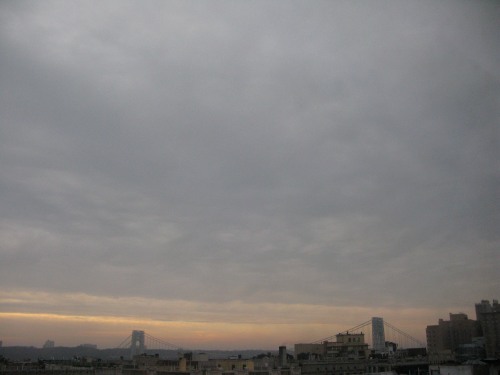
There is a pastel hue to the sky today that I haven’t seen since ____, which makes me think that summer is approaching. It reminds me of the sky I saw not too long ago in Vienna, although there the tones were more subtle and exquisite in a way that New York cannot ever quite seem to match — probably because we are too far south — but it also reminds of the sky that I saw from this exact location last year, when I first starting paying closer attention.

It makes me look forward to the coming months, when the sun will move north — inching closer to the bridge — and each day fall dramatically behind the Palisades. Only the bridge is constant and unchanging, as if tying the past to the future, as much as one piece of land to another.
Filed under: Architecture, GWB Project, Washington Heights, Weather | 3 Comments
Tags: Foreshadowing, Pastels, Summer, The George Washington Bridge, Vienna
In which The Gay Recluse becomes increasingly obsessed with the George Washington Bridge.

Today, before work.
The George Washington Bridge is a true beauty — someone should write an opera about it!
–Andy Warhol
Filed under: GWB Project, Quotes, Weather | Leave a Comment
Tags: Andy Warhol, The George Washington Bridge, Work
In which The Gay Recluse is increasingly obsessed with spring.
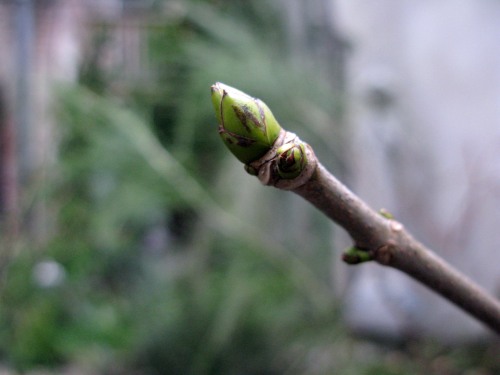
The garden at the end of winter is not exactly a joy to behold: branches are bent or broken, evergreens are pale, and even the ground — littered with dead leaves and twigs — seems inhospitable.

But a closer examination reveals signs of life: the first photo above is a Sycamore Maple (Acer pseudoplatanus “Eskimo Sunset”) and this is a tree peony. If all goes as expected, they will both be in full bloom within a a few months.

Even the climbing hydrangea is prepared for the warmer days ahead; one advantage of being a plant, it seems, is that you are less deterred by circumstances beyond your control, and simply welcome the change you know is going to come.
Filed under: Longing, Photography, Resignation, The Spring Garden, The Winter Garden | 1 Comment
Tags: Climbing Hydrangea, Sycamore Maple (Acer pseudoplatanus "Eskimo Sunset"), Tree Peony
In which Death Culture at Sea looks back a few decades.

Listen on our Tumblr
or
Download from the Death Culture at Sea site.
“My Back for Thirds”
Here I looked around
In your dream I hit the ground
I was bringing something wrapped in silk around to you
But it was nearly cut in half
You cried as if he hated you
Here you made your plans
They might work I understand
We all want a second chance
To clear this haze from our eyes
Burning like the sun you seemed to sink away into the night
Watching this I almost died
And knew that I could never sleep
I’d rather know my dreams were clearly hated and despicable
Filled with clowns and Ponzi schemes
Cheating with your memories
Filed under: Death Culture at Sea, Dream, Memory | 1 Comment
Tags: Indie Rock, Ponzi Schemes, Retro
On Vexed
In which The Gay Recluse is vexed.
Lately we’ve been thinking about how much we still kinda h8 the words ‘gay’ and ‘queer.’ Though we know that many in ‘the community’ consider this a ‘settled issue’ — and perhaps this is a vestige of our own self-h8red, which is not small by any measure — we still generally feel uncomfortable identifying with either term beyond the most perfunctory shorthand, like when d-bags in the locker room are talking about how they want to ‘bone some broad’ and they look in our direction for validation we’re like ‘stfu — we’re gay.’

We went to dictionary.com and looked up gay:
Gay –adjective
1. having or showing a merry, lively mood: gay spirits; gay music.
2. bright or showy: gay colors; gay ornaments.
3. given to or abounding in social or other pleasures: a gay social season.
4. licentious; dissipated; wanton: The baron is a gay old rogue with an eye for the ladies. [Ed. wait — what?]
5. homosexual.
6. of, indicating, or supporting homosexual interests or issues: a gay organization.

If you’re like us, none of these definitions remotely captures anything about your life, except maybe numbers five and six, to the extent that it’s synonymous with “non-heterosexual.” But as we all know, “homosexual” is a scientific term invented in the late 1800s and thus cannot be used without sounding like you’re an animal in the zoo, e.g., “Yall, let’s get a grant to study the homosexuals! We heard that they have enlarged brains/thumbs/swirly hairdos/six-packs!”

So what about queer?
–adjective
1. strange or odd from a conventional viewpoint; unusually different; singular: a queer notion of justice.
2. of a questionable nature or character; suspicious; shady: Something queer about the language of the prospectus kept investors away.
3. not feeling physically right or well; giddy, faint, or qualmish: to feel queer.
4. mentally unbalanced or deranged.
5. Slang/Disparaging and Offensive a. homosexual. b.effeminate; unmanly.
6. Slang bad, worthless, or counterfeit.

We understand the idea of ‘reclaiming your identity’ — kinda like how all the kids on the subway call each other ‘nigga’ — but do you srsly want to be called queer? We don’t! (Might be ‘too old’.) ‘Columbia University has excellent academic programs in Nigga Studies and Queer Studies?’ What makes one soooo much more ‘acceptable’ than the other?

While many of you may or may not agree, in either case we suspect you’d like to challenge us to come up with something better. After all, these terms have many decades of history/study behind them, and it’s possible to envision a day 100,000 years in the future when they might be entirely divorced from the superficial/derogatory meanings from which they originally arose.

Our solution is vexed.
1. irritated; annoyed: vexed at the slow salesclerks.
2. much discussed or disputed: a vexed question.
3. tossed about, as waves.
4 [Proposed as of 2k9]. non-heterosexual.*
*Although we don’t ever endorse the use of adjectives as nouns except in an ironic context — ‘the gays were upset that Madonna/Cher/Britney canceled her tour’ — we propose the alternate form ‘vext’ to allow for similar uses, e.g., ‘the vexts lobbied hard in Albany/DC yet achieved nothing despite Democratic majorities in both houses.’

Seriously, how much more ’empowering’ and — especially w/r/t definition number three — poetic is ‘vexed’ than any other alternative? It’s basically like saying: ‘Don’t fuck with me/us,’ while maintaining a certain and appropriate degree of intelligence and impatience (but not anger or violence, which we don’t support) for mainstream convention that frankly needs to be a hallmark going forward in any interaction with those str8s who don’t ‘get it.’

Try it out. ‘Yall, don’t talk bullshit to me about _____! I’m vexed!’ In politics. ‘Yall should be able to ‘get married’ if you’re vexed.’ Or for students of literature: ‘Marcel Proust was the best novelist of all-time; not coincidentally, like most great novelists except during the dark ages from 1945 to 2010 — he was vexed.’ Note also that ladies are equally welcome to be vexed, and won’t be appropriating a tired old term like gay, which inevitably makes them (as usual) second-class citizens on the gender front.

We are not gay or queer.

We are tossed about, as waves.

We are vext.
Filed under: Dissonance, Drivel, Gay, History, Language, Quotes, Resignation, Ruins, Science, Search, Sickness | 15 Comments
Tags: Queer, Vexed, Vext
In which Death Culture at Sea breaks out the vintage gear.

Until now, all of the Death Culture at Sea songs have been recorded with an acoustic guitar that frankly needs to be worked on a bit, and then we added distortion and all other effects ex poste facto.

With this song, we finally retrieved our 1960s (“blackface”) Fender Princeton Reverb from our friend’s apartment where it’s been living for almost six hundred years and broke out the electric guitar — a pre-CBS Telecaster Custom — which has also been in hibernation. We barely added any effects to anything, just a lil reverb here and there. We recorded it a “bit too hot” — which is why it’s breaking up — but bear with us! We’re pretty much the opposite of natural engineers.

Listen on our Tumblr
or
Download from the Death Culture at Sea site.

“Dreams of Sunsets and Cathedrals”
Let’s trade the keys to the past
And quickly copy our hearts
Memories of a thousands days
A down payment in part
The years have passed through today
Leaving us numb with the task
Of holding on to this one single rope
We know was frayed in the past
Seven years in the sunlight
We were bathed in the glow
I’m sorry to leave this life behind
I never thought I would go
Come with me to the ocean waves
It helps me to say this goodbye
The salt of the sea can heal these wounds
And fall from the tears in our eyes
Filed under: Bad Rock, Death Culture at Sea, Decay, Dissonance, Good Rock | 1 Comment
Tags: Cathedrals, Fender Princteton Reverb, Fender Telecaster Custom, Reverb, Sunsets

